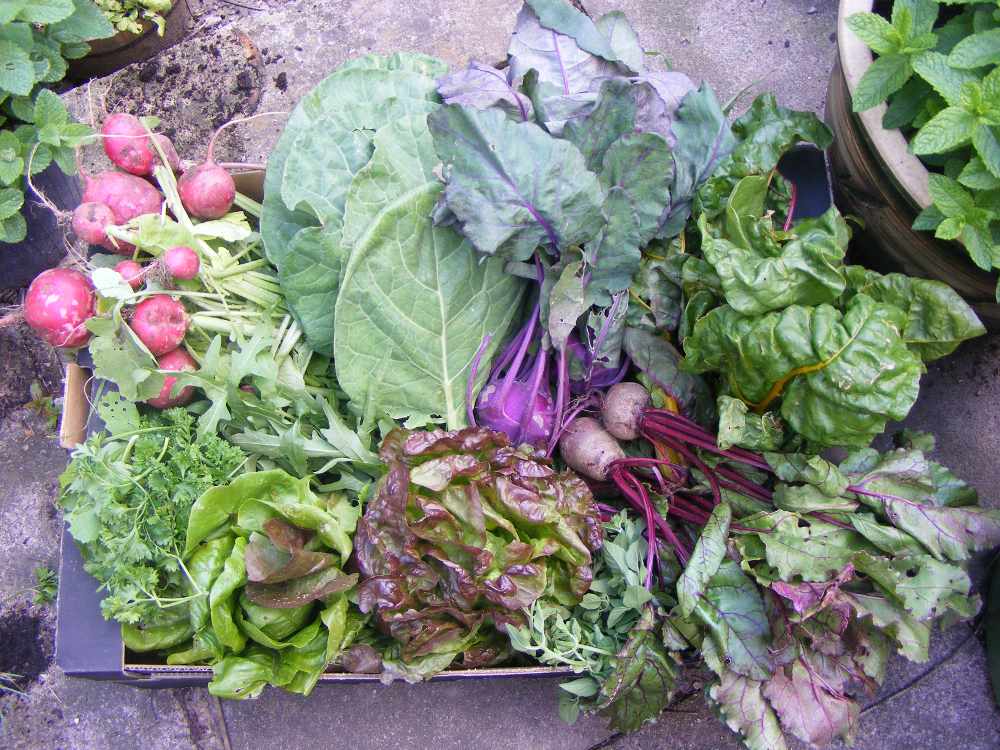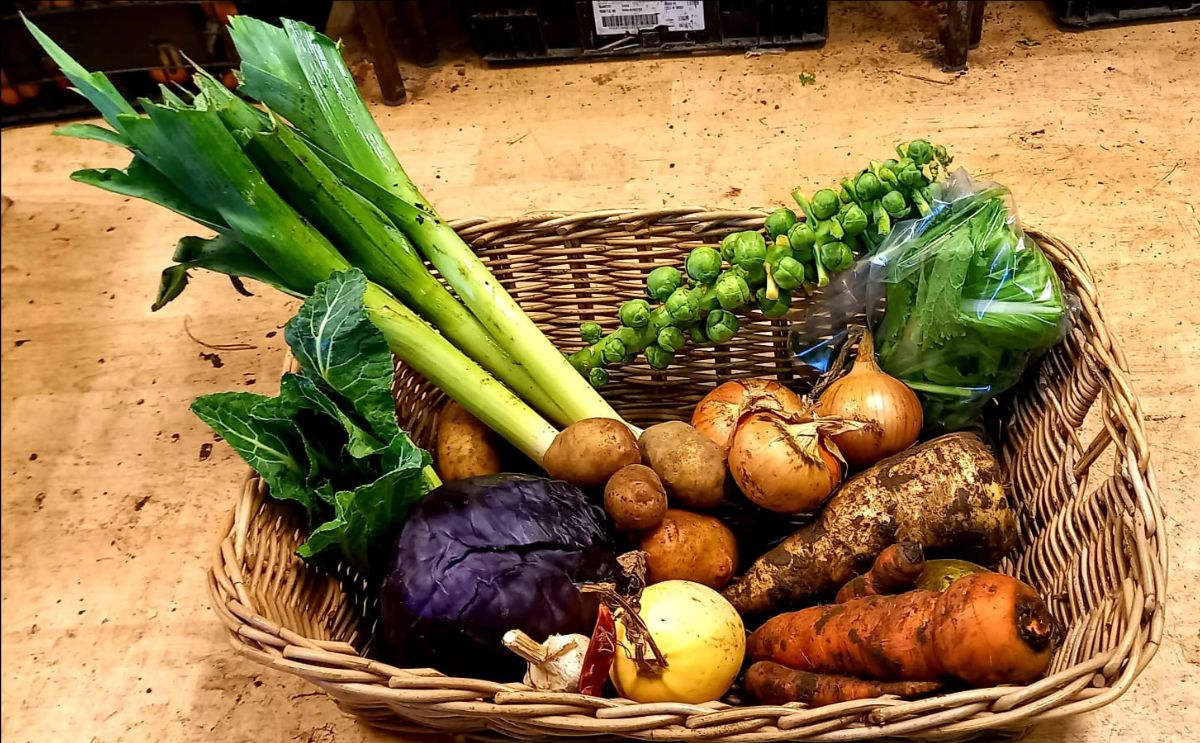About Us
Who are we?

Our farm began in 2012 when Transition Coventry were offered the opportunity to help set up a Community Supported Agriculture scheme at Ryton Organic Gardens. Following an open meeting, we found others who would subscribe to the scheme and help with initial start up funds. Thanks to the help and support of friends, we started growing veg. The regular income pays for our growers and all the costs of running the farm (seeds, compost, rent, water, fuel, electricity, admin, finances, repairs of equipment,etc). We want to pay our employees a reasonable wage as this is the most important job in the world. All the rest of the work of running the farm is done by volunteers.
How does it work?
To provide a regular income to run the farm, our members:
- pay in a monthly amount and
- collect a weekly share of the veg from the farm.
Sometimes people share collections, so we have a number of collection groups in Coventry, Kenilworth and Rugby. This means that people don’t need to come to the farm every week, but take it in turns to collect for each other in the group.
There is an option to pay an additional amount and collect weekly from Wild & Free in Rugby or to have your vegetables delivered in the Coventry area.
What about the veg?
Our veg is seasonal: there are peaks and troughs in the volume of veg during the year, but to keep admin costs down, our members pay the same per month. Over the course of the year this amounts to really good value. Don’t assume that the amount you pay per week reflects the value of the veg in any particular week: the value is spread over the course of the year. After all, our growers still need to be paid throughout the year!

In the summer season we have:
- salad veg (lettuce, tomatoes, cucumbers)
- peppers
- chillies
- aubergines
- summer squashes (courgettes and similar)
- beans
- celery
- fennel
- kohlrabi
- spinach
- and many others…

In other seasons we have a regular supply of:
- potatoes
- carrots
- onions
- garlic
- other root veg (beetroot, celeriac, swede, parsnips)
- a range of brassicas (cabbages, sprouts, kale, broccoli, cauliflower)
- winter greens (stir fry greens, winter salad leaves)
The hungry gap (May/June) is a challenge and sometimes we have opted for fortnightly collections where we supplement the last of the stored and fresh veg with plants and dried beans.
Who we support
We support two local food aid organisations with free vegetable shares.
“Feeding Coventry” is based in Foleshill, Coventry and “Shine Community Hub” in Rugby serves households in New Bilton, Long Lawford, Bilton, Cawston and Overslade.
For more information about these organisations and to make a donation (no need to be a member of the farm) visit our donations page.
What are our values?
Combating climate change:

- Local: lower food miles. All veg is grown in the field at Ryton Organic Gardens.
- Low fuel inputs (low tractor usage, no cool storage costs, no transporting veg up and down the country or from abroad).
- Organic veg (no oil based fertilisers/pesticides).
- The extremes of weather which are becoming more common now are not the fault of the growers – rather we feel it is our responsibility to work with the growers to use methods which seek to combat the causes of climate change. Therefore, as a community farm we share the rewards and risks with the grower.
Biodiversity:

- Organic veg looks after the soil – a key part of a healthy environment.
- Organic agriculture encourages the insect-life on which we completely and utterly depend.
Taking back control:

- We decide what we grow, where we buy our seeds from, and how the veg is grown.
- We choose to use different varieties to preserve genetic diversity in our crops for our own and future generations (we also work with Heritage Seed Library based on the same site).
- We are a vibrant, local answer to the industrial agricultural system which, in its drive for profit, has little respect for people or the planet.
- The quality of our veg is better as it is fresher.
- As consumers we make the decisions in consultation with our growers via the volunteer led Steering Group.
- The structure of the organisation is a Community Interest Company – a social enterprise set up for community benefit and not private profit. Food is too important for profit.
- We choose to be involved with organisations which promote and support small-scale agriculture (Landworkers’ Alliance, CSA Network) and are certified organic with the Soil Association.
Making connections:

- Our farm enables direct connections between consumers (our members), our growers and the soil. We tell stories in our newsletters to enable our members to understand the joys and trials of growing veg.
- Our farm depends on volunteers: this gives people direct involvement with all aspects of growing if they would like. Volunteers also are essential to other aspects of running the farm (reaching out for new members, management, website, newsletters, social events and much more).
- Those who visit the farm either simply to pick up their veg or to volunteer on the site get a feel of the space. We encourage visits and have social events to enable people simply to get onto the field and enjoy the big sky, see the insect life, feel the soil and hear the birds as well as tasting our wonderful veg.
What do our members say?

[Click/touch image to enlarge]